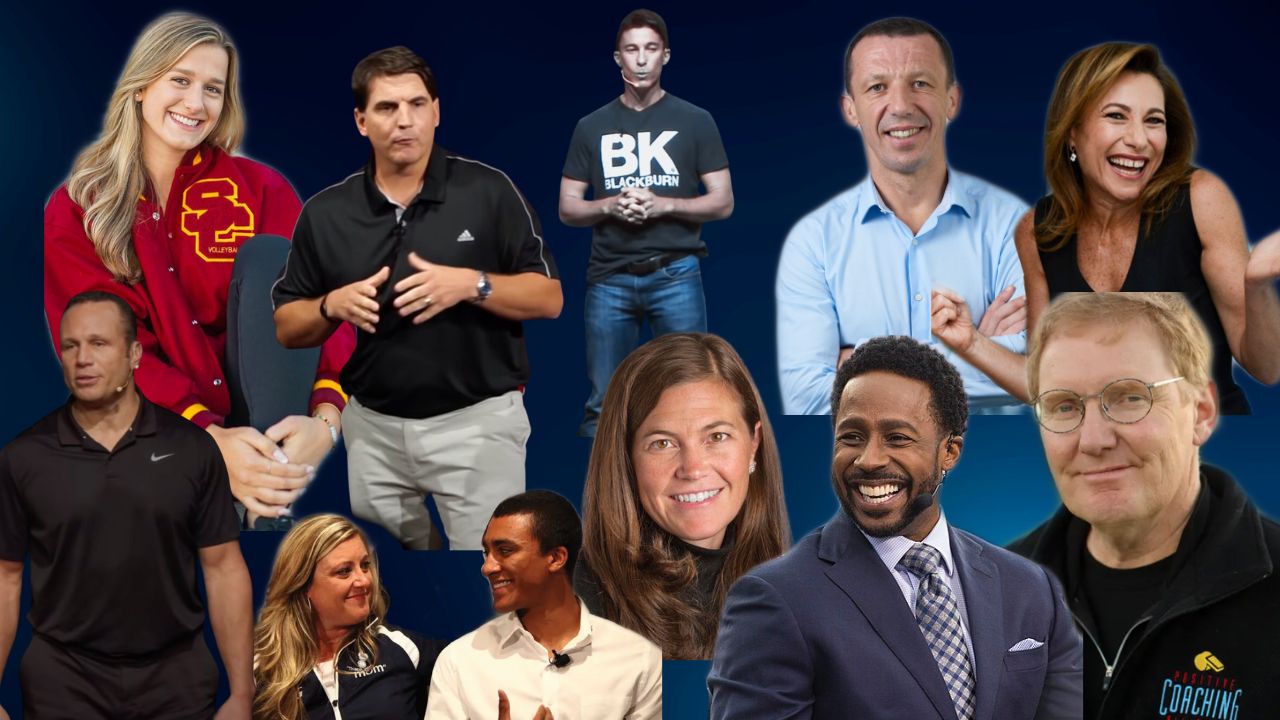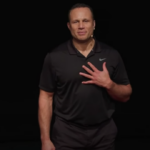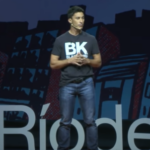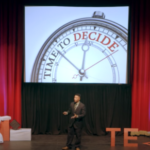
Our 15 Favorite Youth Sports TEDTalks.
Our 15 favorite youth sports TEDTalks. As parents, we strive to guide and support our young athletes, and these talks offer valuable guidance on fostering healthy competition, teamwork, resilience, passion, confidence, inclusivity, and redefining success. Whether your child is just starting their sports journey or already immersed in it, these TEDTalks provide practical strategies and inspiration to positively impact their athletic development.

Youth soccer coach and best-selling author, John O’Sullivan, discusses the value in a hands-off parenting and how it affects how well your athlete plays. He also discusses the genesis for the saying “I Love To Watch You Play”.

Heisman Trophy winner and former NFL star Desmond Howard chronicles his youth sports football journey. He highlights the most important lesson he’s learned — being coachable — and how this lesson has helped him reach all his goals.

“With an increase in investment comes an increase in expectation.” Matt Young calls for parents to stop putting these immense pressures on their children and to allow the kids to choose what they want to do and to honor their child’s wants and needs instead of their own.

Gonzalo Vilariño shares the story of how his blind soccer team was once viewed as less legit because of their visual impairment but was quickly praised and celebrated, going on to become two-time winning World Champions. Vilariño credits the players’ belief in themselves and their capabilities and in the team.

Ashton Eaton, a two-time Olympic champion, and his mother, Roz Eaton, share their insights on raising an Olympian. They highlight the importance of instilling a growth mindset, fostering independence, and nurturing a supportive environment that encourages perseverance and resilience in pursuit of excellence.

Richard Carthon discusses the struggles and strategies of balancing being a two-sport college athlete and a high-achieving student. Carthon shares his secrets and what allowed him to handle all the challenges successfully.

Coach Reed shows us that it is not the skills a coach teaches that have the greatest impact, but the words a coach uses. He explains the importance of inspiring your players through words of encouragement and affirmation, and the lifelong impact it can have.

Heather Bergeson is a sports medicine physician, pediatrician, and mother of two young athletes. She dives into the negative effects of the “win at all costs” mentality that parents put on their young athletes.

Jim Thompson is the founder of the Positive Coaching Alliance. In his insightful talk, Thompson encourages us to shift our mentality on youth sports in order to focus on the valuable life lessons that children can learn by playing sports.

Jennifer Nacif explains that not every child is the same, a fact that seems so obvious yet is often overlooked. She highlights the importance of understanding and leveraging a child’s unique motivational style to effectively inspire and empower them through a tailored approach to reach their full potential.

Victoria Garrick dives into her struggles with anxiety and depression as a college student while starting for USC’s volleyball team. She talks about the flawed culture of athletics when talking about mental illness and reveals the hundreds of thousands of athletes who continue to struggle with mental health.

Ned Phillips chronicles his experiences as an endurance runner and achieving peak performance through focusing your mind to stay present and enjoy the moment, rather than looking to the end goal.

Ironman, Brendan Brazier, asserts that nutrition is the most important factor in improving your game, even more, important than talent.

US Navy SEAL Captain Tom Chaby gleans insight into the importance of mental resilience, preparation, and embracing the discomfort of challenge. By developing a mindset of adaptability and focusing on the present moment, we can thrive under pressure and achieve our goals.

Charlie Unwin discusses the power of visualization in enhancing athletic performance by allowing us to reproduce skills more smoothly. Providing examples from various athletes and sports, Unwin emphasizes the importance of focus visualization as essential in perfecting your performance.











